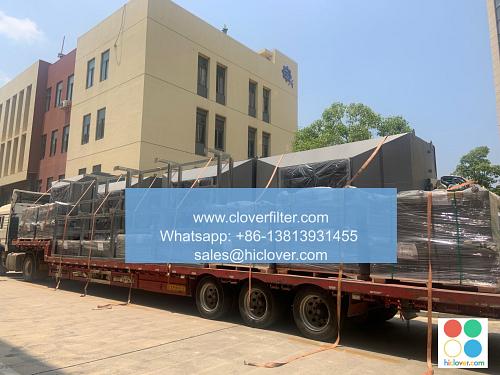The Importance of Air Filtration in hospitals

Air filtration is a critical component of infection control and indoor air quality (IAQ) management in hospitals. The healthcare industry relies heavily on effective air filtration systems to prevent the spread of hospital-acquired infections (HAIs) and maintain a safe environment for patients, visitors, and staff. In this article, we will discuss the importance of air filtration in hospitals, its application areas, and the benefits of implementing a robust air filtration system.
Preventing Hospital-Acquired Infections (HAIs)
Hospital-acquired infections (HAIs) are a significant concern in the healthcare industry, accounting for a substantial number of morbidity and mortality cases. Airborne pathogens, such as influenza, tuberculosis, and norovirus, can spread quickly through the air, infecting vulnerable patients. Effective air filtration systems can help prevent the spread of these pathogens by capturing particulate matter (PM), bacteria, viruses, and fungi from the air.
Air filtration systems are essential in various areas of a hospital, including:
- Operating Rooms (ORs): Air filtration systems help maintain a sterile environment, reducing the risk of surgical site infections (SSIs).
- Intensive Care Units (ICUs): Effective air filtration systems help prevent the spread of ventilator-associated pneumonia (VAP) and other respiratory infections.
- Patient Rooms: Air filtration systems help maintain good indoor air quality, reducing the risk of influenza and other airborne infections.
- Isolation Rooms: Air filtration systems help prevent the spread of airborne pathogens from patients with infectious diseases.
- Reduced Risk of HAIs: Effective air filtration systems help prevent the spread of airborne pathogens, reducing the risk of HAIs.
- Improved Indoor Air Quality (IAQ): Air filtration systems help maintain good indoor air quality, reducing the risk of respiratory problems and other health issues.
- Increased Patient Safety: Air filtration systems help create a safe environment for patients, reducing the risk of morbidity and mortality.
- Reduced Operational Costs: Effective air filtration systems can help reduce energy consumption and maintenance costs, while also extending the life of heating, ventilation, and air conditioning (HVAC) systems.
Benefits of Air Filtration in Hospitals
The benefits of air filtration in hospitals are numerous, including:
Conclusion
In conclusion, air filtration is a critical component of infection control and indoor air quality management in hospitals. Effective air filtration systems can help prevent the spread of hospital-acquired infections, maintain good indoor air quality, and reduce operational costs. By implementing a robust air filtration system, hospitals can create a safe environment for patients, visitors, and staff, while also reducing the risk of morbidity and mortality. As the healthcare industry continues to evolve, the importance of air filtration will only continue to grow, making it essential for hospitals to prioritize air filtration systems and indoor air quality management. It seems like you’re ready to start a conversation or request assistance, but you haven’t provided a specific prompt or question yet. Could you please provide more details or clarify what you need help with?

